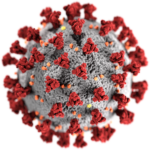 The embeddedness of liberal democracies in an interdependent world characterized by relatively free cross-border flows of goods, services, assets and people has amplified the virulent effects of highly contagious deadly disease, argues Carla Norrlof, Visiting Research Professor at the Finnish Institute of International Affairs.
The embeddedness of liberal democracies in an interdependent world characterized by relatively free cross-border flows of goods, services, assets and people has amplified the virulent effects of highly contagious deadly disease, argues Carla Norrlof, Visiting Research Professor at the Finnish Institute of International Affairs.
The Covid-19 pandemic is threatening the liberal international order (LIO) in three ways, she contends:
- First, the open nature of the LIO provides favourable conditions for the proliferation of infectious diseases. With the spread of the disease, governments also started implementing political and economic policies inconsistent with the liberal international order.
- The health crisis presents a second test for the LIO insofar as it undermines political freedoms. Border closures, ethnic differentiation and biometric surveillance have ensued since the outbreak.
- Third, both coordinated and uncoordinated actions to cope with Covid-19 put economic freedoms at risk as pecuniary activity declines and ‘economic security’ policies consistent with economic nationalism start to jeopardize liberal policies. RTWT

Some of Latin America’s democracies have taken proactive steps to address the pandemic, adds Stephen Johnson, @IRIglobal’s till, the response among democracies has been uneven, some lagging far behind or implementing problematic measures, he writes. The presidents of Brazil and Mexico dismissed social distancing even as local officials were closing schools and enforcing curfews. Complaining of poor interagency coordination, Ecuador’s health minister resigned March 21 as bodies started appearing in the streets of Guayaquil. Bolivia has clamped down on press freedoms and asked COVID-19 victims to wear ankle monitors.
The COVID-19 pandemic has placed unprecedented pressure on countries and states as to whether to hold or postpone scheduled elections, amid controversies in either case, notes International IDEA.
Should the fulfillment of the social contract between a government and its citizens come at the expense of endangering their health and lives? Or should concerns of exacerbating the outbreak as a result of the mass gatherings inherent to the societal ritual of voting, prevail over other considerations? IDEA asks in a new Technical Paper, Managing Elections under the COVID-19 Pandemic: The Republic of Korea’s Crucial Test.







